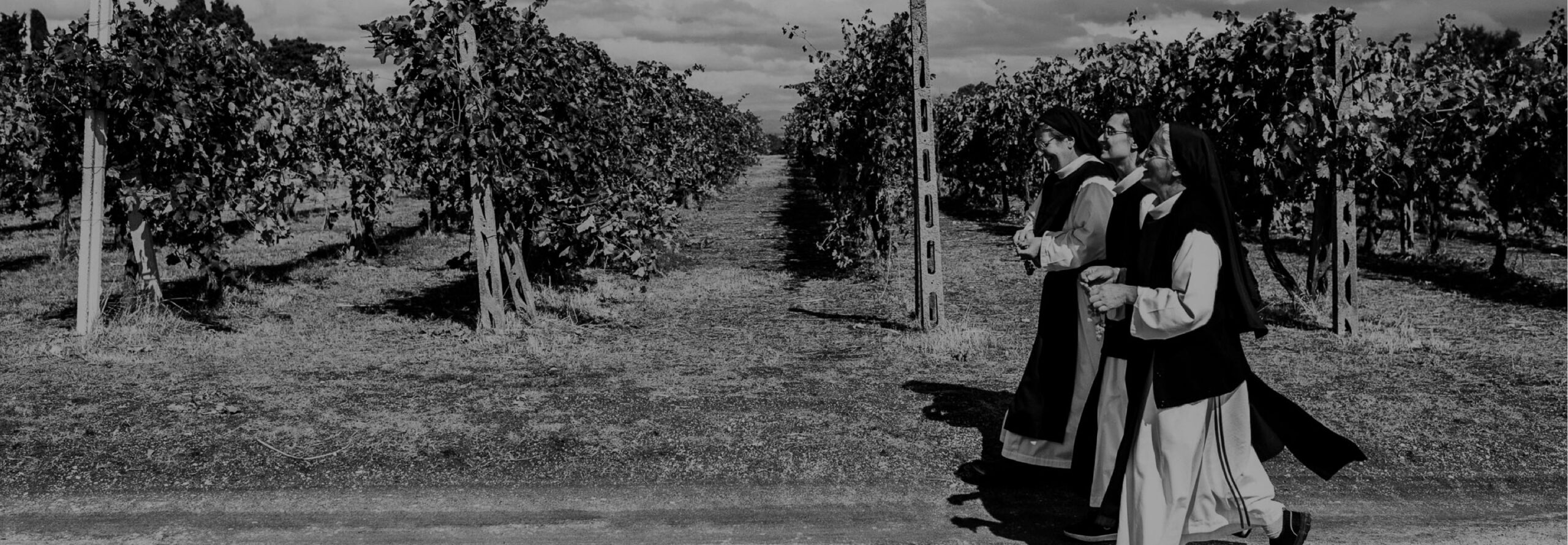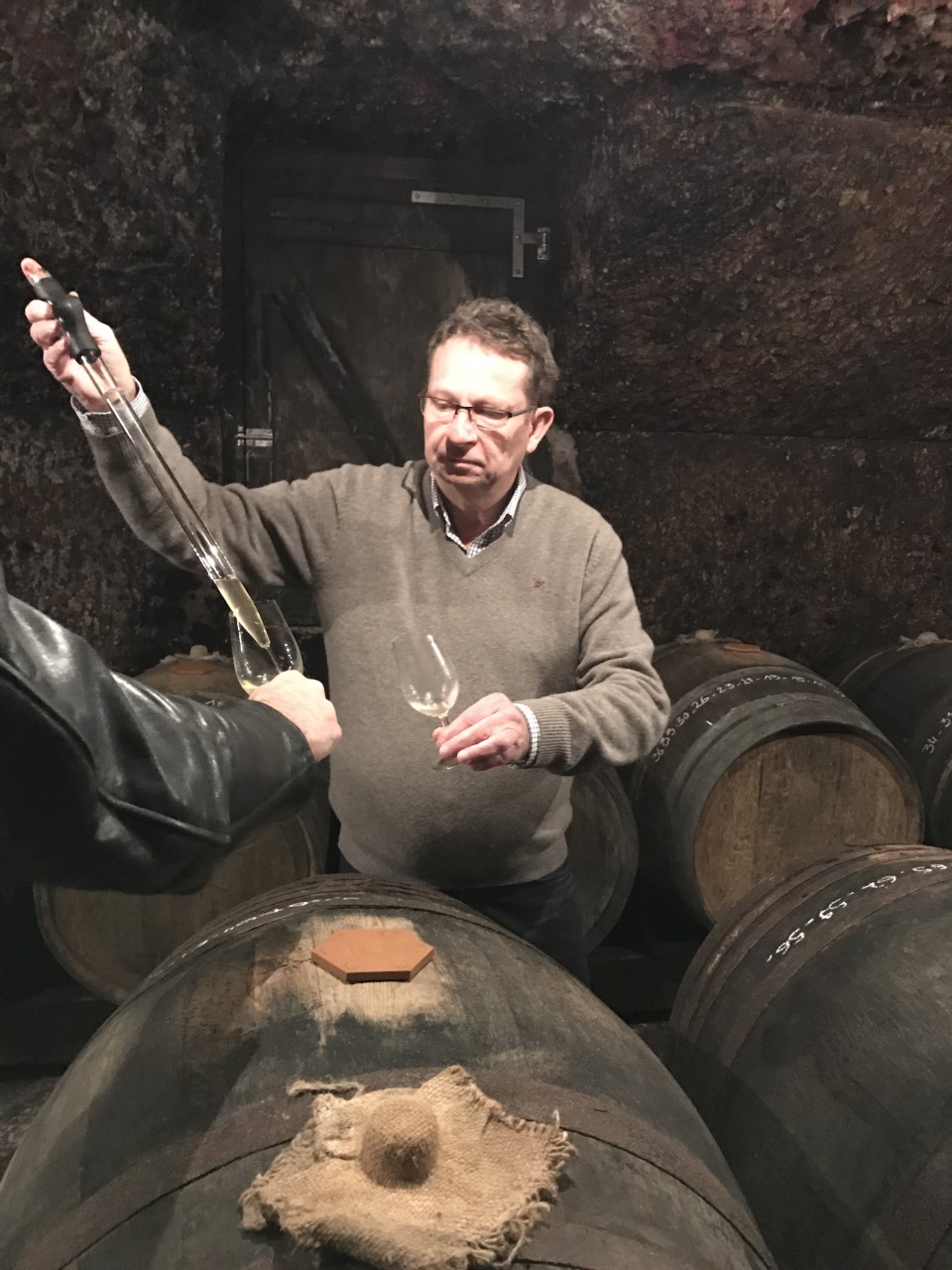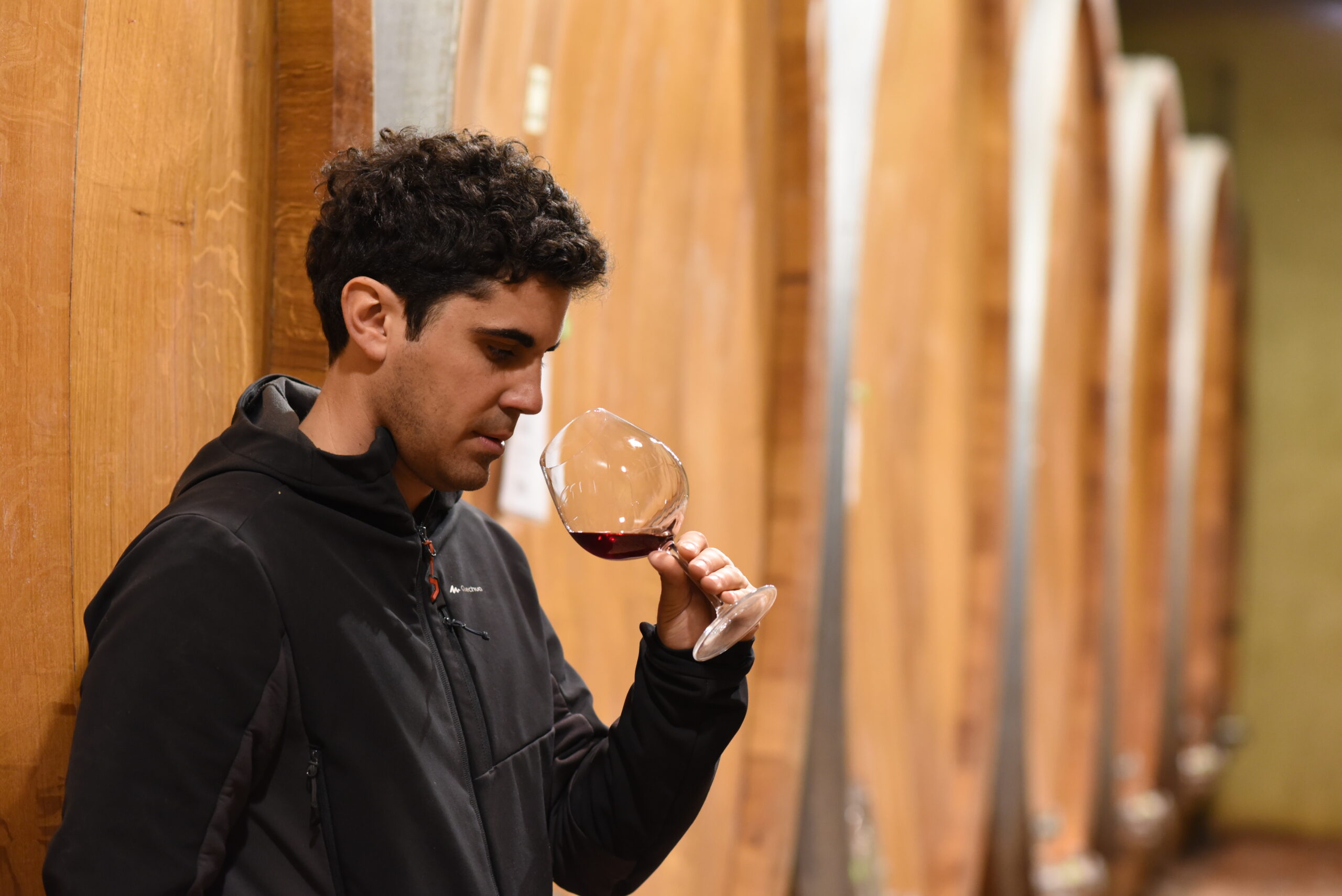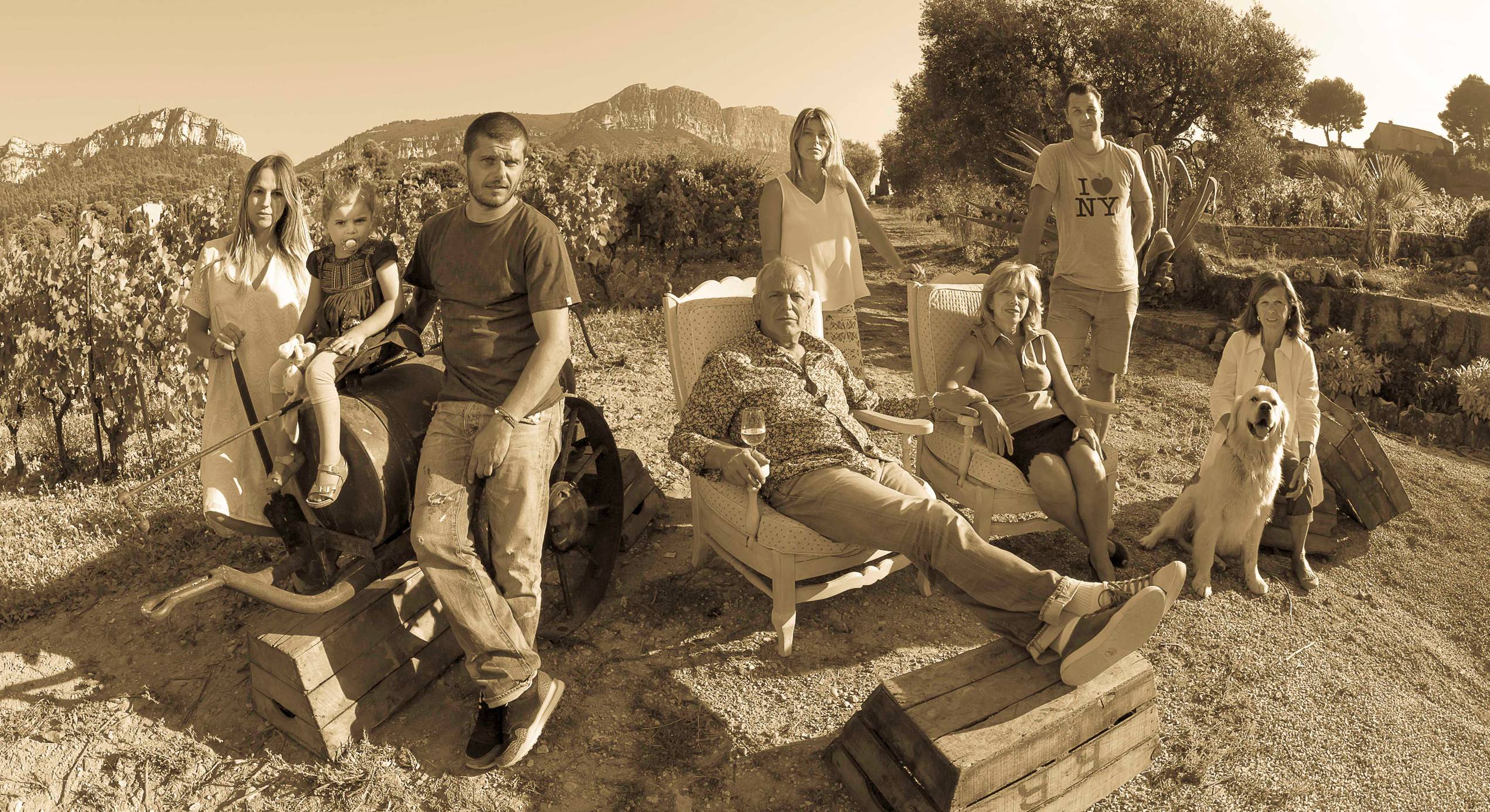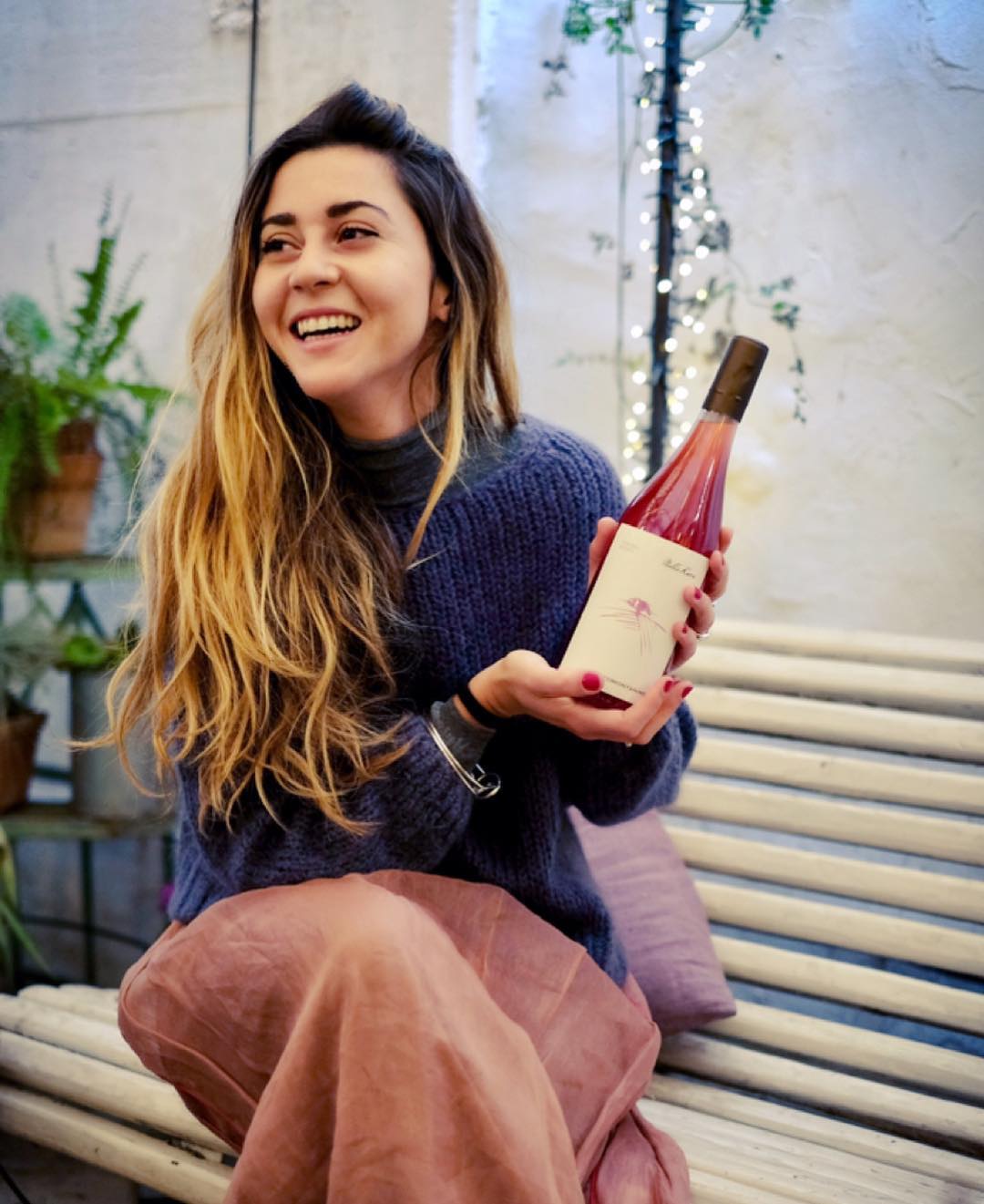
Maria Sole’s farm is called Ficomontanino, which roughly translates to “Little Fig Mountain”
A Breath of Fresh Air in Southern Tuscany
Within Tuscany’s relatively conservative winegrowing culture, Maria Sole Gianelli’s wines are a breath of fresh air. Maria Sole’s farm is called Ficomontanino (roughly, “Little Fig Mountain”), a property her grandfather acquired in the 1960s as a place to produce olive oil and breed horses. Situated in the far southeast of the region near the town of Chiusi, Ficomontanino is administratively part of Tuscany, but geographically and spiritually it speaks to both Umbria and Lazio, both of whose borders are mere kilometers away. From her 12 hectares of vines, planted at around 350 meters altitude on the south-facing slopes of her family’s property, one can see Lake Trasimeno in Umbria to the east, the mountains of northern Lazio to the south, and the rolling hills of Siena to the northwest.
Maria Sole’s grandfather planted the first vines here almost 40 years ago, making wine as a hobby, and while Maria Sole’s father ramped up production a bit, his approach was more conventional, informed by then-current trends toward power and color. Maria Sole, having studied at Slow Food’s University of Culinary Arts at Pollenzo, was inspired by the teachings of Rudolf Steiner and Masanobu Fukuoka to reimagine her family’s vineyards as part of a larger ecosystem, and when she gained responsibility for them in 2014, she set about establishing a natural equilibrium on the property, incorporating biodynamic preparations, allowing vegetation to grow freely, and relying on only bare traces of copper-sulfate to treat her vineyards.
Maria Sole has gradually been refining her approach in the cellar as well, working toward ever more expressiveness via ever fewer interventions. Her mother is from Sardinia, and she was inspired to drastically alter her approach to temperature control, sulfur, and other such safeguards by the boldly natural wines of Tenute Dettori (located near to her mother’s birth home), as well as by numerous examples from Piedmont, where she worked after school for several years. Her cellar sidekick Fabio, originally from the Valtellina, worked at the legendary Ar.Pe.Pe estate, and both he and Maria Sole bring a certain appreciation of reined-in, precise wildness to the overarching aesthetic of Ficomontanino’s wines.
Our inaugural release in spring of last year met with immediate resounding enthusiasm, and we are excited to present a quartet of new releases from Maria Sole this summer—including the only Italian Mondeuse we have ever encountered! For those wondering, the stupendous “Granomelo” will be released later in the year (along with a few new surprises), so stay tuned for that.
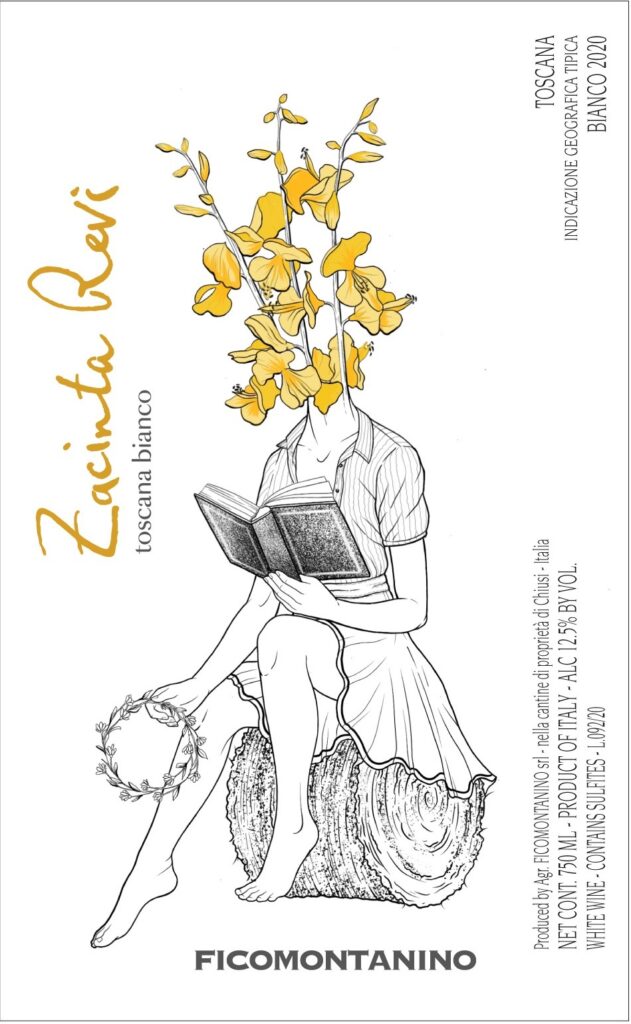
2021 “Zacinta Revi” Bianco IGT Toscana
“Zacinta Revi” is named after one of Maria Sole’s grandfather’s beloved horses. Formerly a Sauvignon Blanc in purezza, recent vintages have seen Maria Sole incorporating portions of direct-press Sangiovese (Sangiovese vinified as a white wine, in other words) as well as—beginning in 2021—younger plantings of Trebbiano Toscano. Furthermore, she allows the Sauvignon Blanc to macerate on its skins for a few days—enough time to contribute a touch of color and to enhance the wine’s texture, but not enough to turn it into a full-bore skin-contact-style white. The results are delightful, with tangerine, anise, and musky flowers supported by firm minerality and tangy acidity. The fruit for “Zacinta Revi” comes primarily from 20-year-old vines in the chalky clay soils of the Poggio alle Ficaie vineyard at 350 meters altitude, and Marie Sole aged it for six months on the fine lees in stainless steel after a natural fermentation without temperature regulation.
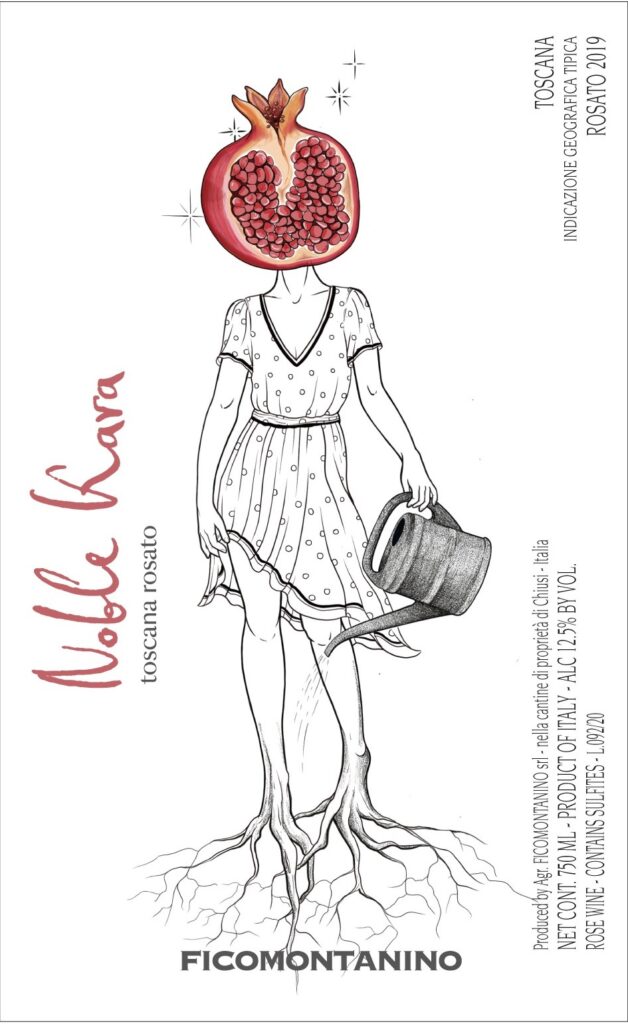
2021 “Noble Kara” Rosato IGT Toscana
Also named after one of Maria Sole’s grandfather’s favorite horses, “Noble Kara” claims its rightful place in the proud tradition of “real” rosé wines—rosés made from fully ripe, healthy grapes trusted to ferment on their own and allowed to express a natural depth of color (think great Cerasuolo d’Abruzzo here). Pure Sangiovese from three different parcels on the property—Ficomontano, Melogranino, and Campo Cavalli—this vivacious wine spends 24 hours macerating on its skins before pressing and fermentation, which takes place in stainless steel via naturally occurring yeasts and with no temperature control. As with all her wines, Maria Sole bottles “Noble Kara” without fining or filtration, and with a minimum of sulfur.
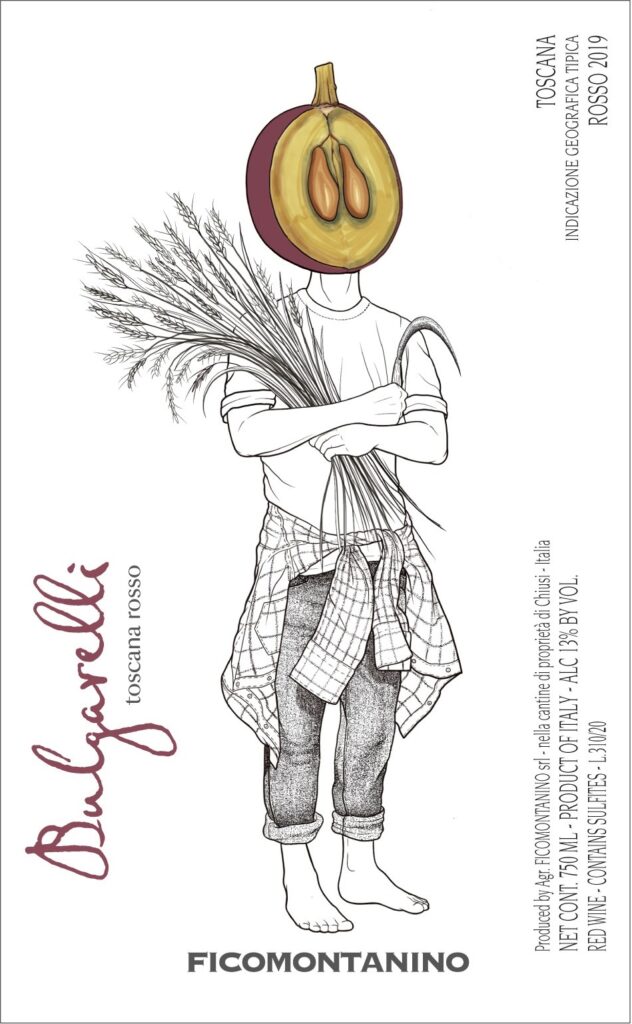
2020 “Bulgarelli” Rosso IGT Toscana
Maria Sole’s workhorse (pun intended) wine, “Bulgarelli”—named after her grandfather’s prized stallion—is pure Sangiovese from 20- to 30-year-old vines planted in the sandy clay soils of the farm’s main three parcels: Ficomontano, Melogranino, and Campo Cavalli. Fermented naturally in cement, and aged six months in non-thermoregulated stainless steel, Bulgarelli is bottled without fining or filtration, and with a bare minimum of added sulfur. This distinctive wine pulls in multiple directions; it is both fresh and deep, both spicy and earthy, and its dark red fruits soar high, unfettered by cellar manipulations. The ever-versatile Sangiovese finds a new and lovely register here.
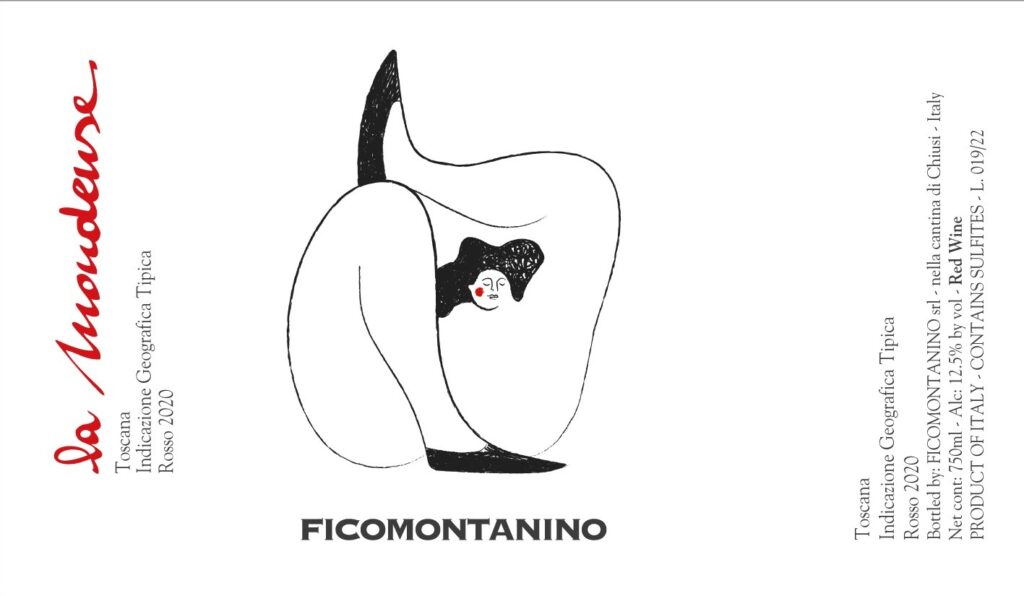
2019 Mondeuse IGT Toscana
Maria Sole’s father has a particular fondness for the mighty Mondeuse—a spice-driven Alpine variety that produces the Savoie’s greatest reds—and he planted a small parcel in the late 1990s at Ficomontanino as an experiment. These vines grow at 350 meters altitude in the sandy clay soils of the Vigna Grande parcel and yield only about 1,000 bottles per vintage. Maria Sole employs the same natural vinification and gentle extraction here as she does with her Sangiovese, but the darker-fruited, grippier, spicier character of the Mondeuse shines through beautifully. Fermented in cement with a 10-day maceration, this spent six further months in cement followed by a year in non-temperature-controlled stainless steel before being bottled without clarification or filtration.
Related
